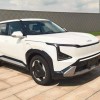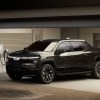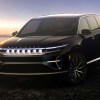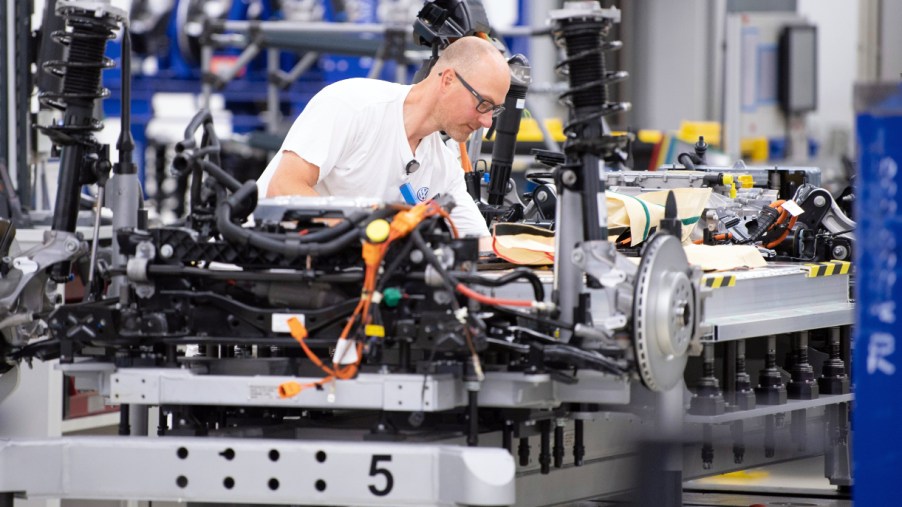
Hybrid and EV Batteries: What’s the Difference?
Carbon emissions have forced the automotive industry to undergo some major changes. More hybrid and fully electric vehicles are being produced than ever before. Hybrid and electric vehicle batteries will power the future. The question is, what’s the difference between these two types of batteries?
How do hybrid batteries differ from fully electric batteries?
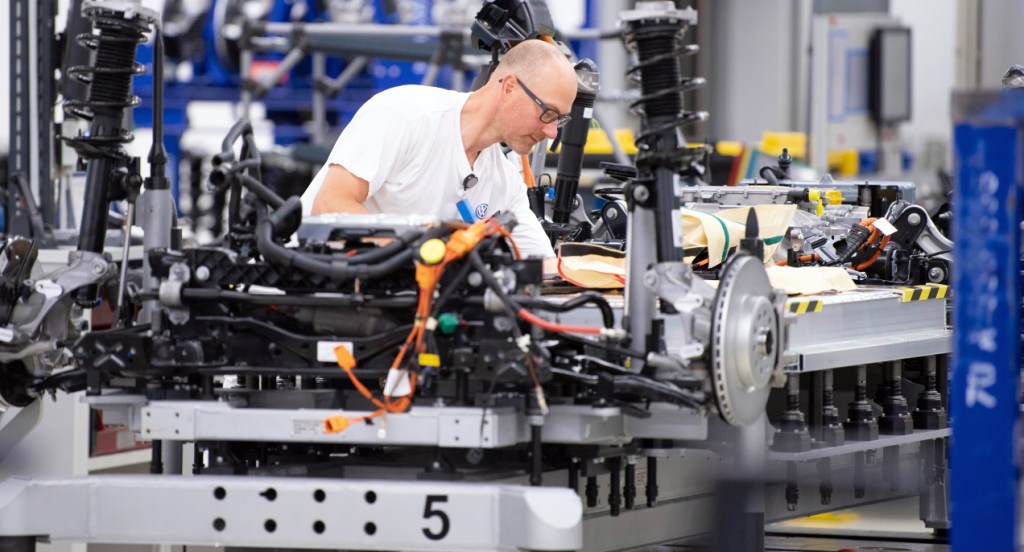
Today there are two types of hybrid vehicles available: hybrids and plug-in hybrids (PHEV). These two types of hybrids use their powertrains differently and often have different battery sizes and usable energy capacities. Both types of hybrids require different amounts of charge and discharge power to function properly.
According to Car and Driver, hybrid vehicles have the smallest batteries compared to plug-in hybrid and fully electric vehicles. Plug-in hybrid batteries are much larger because they can allow PHEVs to travel solely on electricity for short distances. Normal hybrid vehicle batteries, on the other hand, are constantly charging and discharging as power enters and exits the small battery designed to assist the gasoline engine.
Hybrid batteries work in tandem with gasoline engines to maximize mileage. Plug-in hybrid batteries can stand alone from gasoline engines when charged and fully power the vehicle for short spurts. Fully electric vehicle batteries are the largest of the three battery types because they need the most voltage, charge, and discharge power to fully power a vehicle.
Are hybrid vehicles more powerful than electric vehicles?
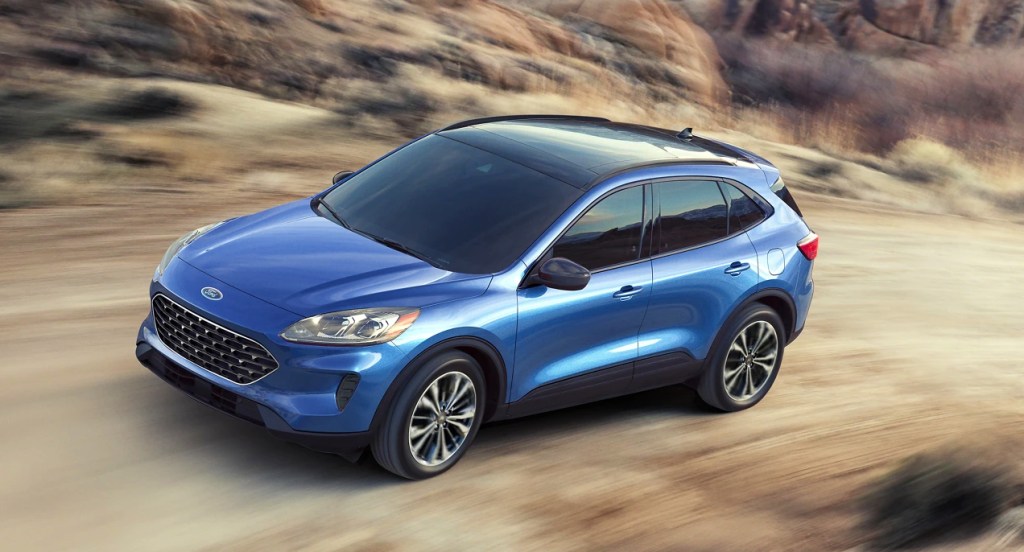
Both hybrid and electric powertrains have come a long way from when they were first introduced to the marketplace. The Toyota Prius was one of the first mass-produced hybrids on the market in 1997. Decades later, jokes are still made at the Prius’ expense. Some consumers hate the Prius with a passion. Why? Prius models are known to provide very little acceleration and power. Many drivers believe that the Prius took the fun out of driving, and thus, the narrative that hybrid models were weak was created.
Today automakers have electrified their lineups, and many popular models come in hybrid versions. While these hybrid models often provide less power than their gas counterparts, they are much faster than the hybrids of yesteryear. Some electric vehicles do come with weaker powertrains, but models like the Tesla Model S prove they can be just as fast as gas-powered vehicles, if not faster.
Electric vehicles were once considered weak, just as hybrid models were. Today there are a variety of options available, and many electric powertrains are actually stronger than hybrid powertrains. That being said, they do cost a pretty penny at times. As electric vehicles evolve, automakers will find ways to provide more power for more affordable prices. The Ford Mustang Mach-E is a perfect example of the potential for powerful, affordable electric vehicles.
Which vehicle type is the better purchase?
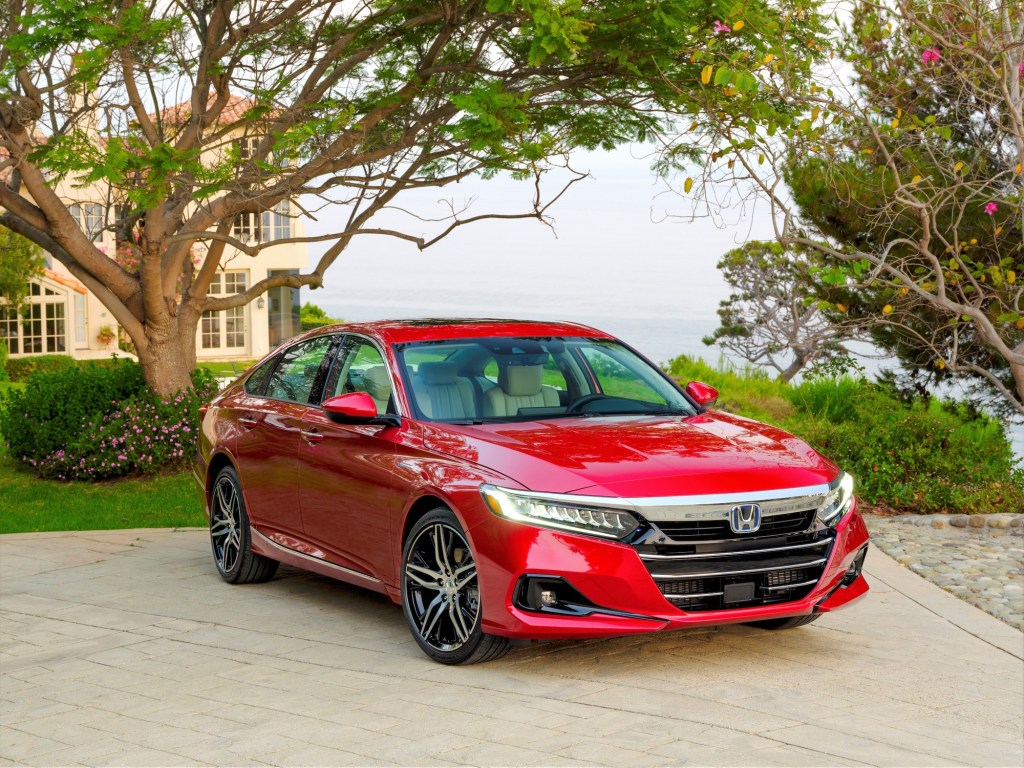
Hybrid vehicles have done an excellent job at introducing consumers to electric powertrains. Hybrid vehicles are the best of both worlds but unfortunately, the climate crisis calls for more drastic measures. The time for hybrid vehicles is rapidly coming to an end as new electric vehicles are introduced.
United States President Joe Biden hopes that by 2030 50% of new cars will be electric. Millions of dollars are being spent on electric vehicle infrastructure. Hybrids and plug-in hybrids are better for the environment than gas-powered vehicles, but eventually, most consumers will need to fully commit to electric vehicles. Hybrid vehicles may provide some comfort and familiarity in the short term, but the EV revolution is underway.
